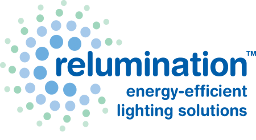The shorter days of fall and winter increase the hours of darkness around parking lots, schools, and outdoor public and business facilities. This darkness provides cover for criminal activities that would otherwise be difficult to conduct in broad daylight. Now is the time to improve your security lighting. Before defaulting to decades old lighting technologies, such as sodium or metal halide lamps, consider the benefits of new technology developments such as LED lighting.
Quality of Light
Unlike sodium lamps, which emit an orange-yellow light, LEDs provide a high quality white light that accurately renders colors. Sodium lamps were considered highly energy-efficient back in the 1980s and 1990s. However, LEDs far surpass them in efficiency today. On the other hand, metal halide lamps provide a nearly white light, but are less efficient than even sodium lamps.
Distribution of Light
Both sodium and metal halide lamps are inefficient in another sense because they are multi-directional lights. This means they waste a lot of light that’s directed away from the target area. While LED is unidirectional and therefore directs their full lighting capacity at the target area. This is one reason LED lighting appears brighter.
This brighter and higher quality light makes criminal activity more visible and acts as a better deterrent. Another benefit is that video surveillance systems would capture higher quality imagery of trespassers. This greatly facilitates the efforts of authorities in identifying the perpetrators.
Ability to Control
LEDs require no warm up time, which makes them ideal for use with motion sensors. When motion is detected, the LED light turns on instantly to full brightness. Timers will keep the light on for a preset delay period after motion is no longer sensed. This feature further reduces the energy consumption of this already efficient light. The sudden illumination also serves to startle any trespassers and draw the attention of people nearby.
Want to improve your security lighting and save money on increased energy efficiency? If so, then contact us for more information.
